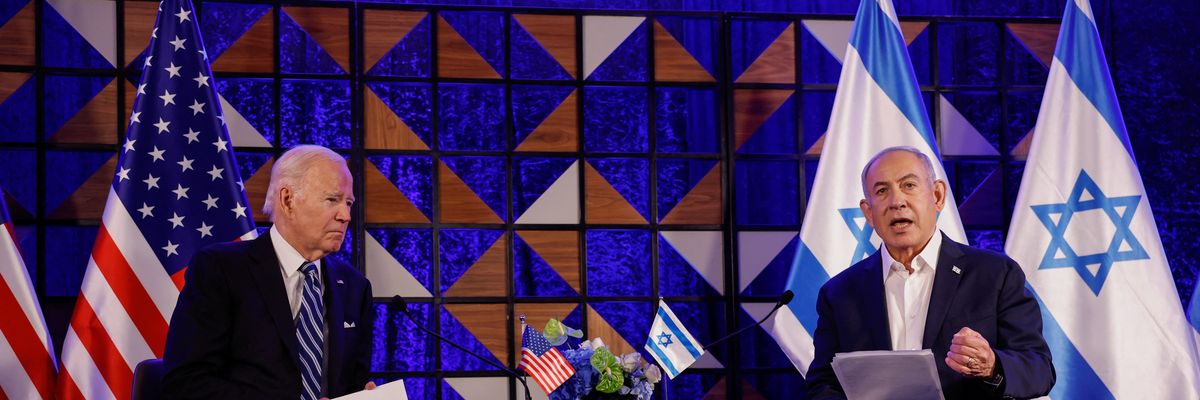President Biden landed in Israel Wednesday and immediately held a meeting for press with Prime Minister Benjamin Netanyahu where he seemed to endorse the Israeli's version of who caused the hospital explosion in Gaza on Tuesday.
"Based on what I’ve seen, it appears as though it was done by the other team, not you,” Biden told Netanyahu as they sat opposite each other. “But there’s a lot of people out there not sure.”
Israel has blamed Islamic Jihad Palestinian militants for they say was an errant bomb. Palestinian officials say Israel was responsible. Neither claim has been independently verified, and according to Peter Baker of the New York Times, U.S. officials told reporters on the plane to Israel that they were still gathering information, so it is not clear what Biden was looking at to make his assessment.
According to Gaza health authorities, the blast has so far killed 500 people, including staff, patients, and civilians who had taken refuge there after evacuation orders from Israel.
During this extraordinarily fraught visit, Biden will first assure Netanyahu of his support in the wake of the Hamas attacks and kidnappings last week, but he has pledged to raise humanitarian concerns with the prime minister, too, as Israel continues to pound the Gaza strip with missiles and still appears poised for a ground invasion. A humanitarian corridor to get basic supplies like water, food, and fuel to Palestinians in Gaza has yet to be opened. Jordan’s King Abdullah II called off meetings that were to be held with Biden, Egyptian President Abdel Fattah el-Sisi , and Palestinian Authority President Mahmoud Abbas, after the hospital explosion yesterday.
UPDATE: At a later meeting with first responders and victim's families in Israel, Biden was asked why he felt "the other team" was responsible for the hospital strike:
Story is developing.
















